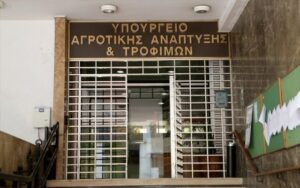Hello, the hour of reckoning has arrived for the new leader of the free world, and naturally, this week, something quite dramatic would need to happen to shift the spotlight from this major event that occurs once every four years and politically, geostrategically, and economically impacts the whole world. Judging by the polls and predictions on both sides, we may find out the winner more than 48 hours after the polls close, though any forecast could simply end up being guesswork.
We…
– Now, as for us as a country, it doesn’t take a genius to see we’d prefer the Democrats and Kamala, though it’s neither in our hands nor the end of the world if things don’t go that way. After all, there are ties and balances, and our relationship with the U.S. has strengthened more than ever over the past few years, aided by the dynamic presence of Ambassador Tsounis. We shall see. An interesting week is dawning.
In Athens…
– In Athens, the government is currently occupied with various important, though not earth-shattering, governance issues. Meanwhile, bizarre tales, straight out of Latin America, are coming to light and have become the talk of the town. You might say it’s the old story of “same old, same old” in Greece. Another thing Greece has “always had” – and something this administration, as well as K.M. himself, will also have to deal with – is the wear and tear of a second term. This includes inevitable signs of arrogance, along with increasingly bold and demanding oligarchs and special interests. And naturally, the “regular” folks, whether businesspeople or media tycoons who aren’t asking for money or power, are fewer and fewer and are likely running low on patience. This calls for special caution, because, as we’ve seen before, internal opponents play a role here, and in this instance, some of them are even the same people. For example, Samaras, who toppled Constantine Mitsotakis’ government, wouldn’t hesitate to take down Kyriakos Mitsotakis’ administration if he could. Now, I don’t know if he has enough MPs at his Sunday gatherings, allegedly eating souvlaki and plotting (LOL), or if he could align with Karamanlis’ group, though the Rafina resident is more restrained and less impulsive than Antonis, who some say might even be angling for an interim prime minister role. Though personally, I’m not sure who or what this transition would be for. At any rate, there are eager oligarchs ready to lend support, and let’s not forget the opposition, which now includes Nikos Androulakis, who is flexible and notably open to media support and more. Well, the man is just doing his job, and if he manages to stabilize at 20% or higher, he’ll certainly be playing in the big leagues.
Cabinet Reshuffle – Maximos Mansion – Schinas
– Thus, the next big topic already buzzing in political offices and business salons around Athens is the upcoming cabinet reshuffle, which will most likely happen after the presidential election, in three months, meaning “wait and see,” especially with K.M., who not only keeps his cards close but also recalibrates based on timing, especially for reshuffles. One juicy tidbit I heard (amid other whispers of people rejoining the government, which has become somewhat cliché) concerns former Commissioner Margaritis Schinas. Rumor has it that Margaritis, now back in his hometown of Thessaloniki, is gearing up for a powerful ministerial position, possibly even as Foreign Minister, replacing Gerapetritis if K.M. decides to bring him back to Maximos Mansion – something that doesn’t seem all that far-fetched. Again, I emphasize that this is just information and not a “guarantee,” as we used to say, since there are still more than three months before any reshuffle.
Kasselakis Sr. – Legal Troubles
– As for developments in SYRIZA, while we’re all following them, they no longer have that freshness; they’re not “juicy” anymore. Still, here’s an interesting piece of news related to the democracy champion Stefanos. Today, the Council of State (sixth chamber, if I’m not mistaken) is hearing the case of Kasselakis’ father, who famously owes €11.5 million in taxes. This debt stems from an old issue regarding a villa he owned in Ekali, which the SDOE tax investigation agency found was owned by him via an offshore company, leading to significant penalties. Given that the five-member council had upheld prior rulings from lower courts (first-instance and appellate), it’s likely that today’s seven-member council will reach the same conclusion as the previous judges. Nevertheless, he has his day in court, so we wish him “good luck.”
Only Two Portfolios Stick to the Business Plan
– The red loan market is facing substantial challenges. At the Ministry of Finance, there’s a report by KPMG on the Hercules scheme, which notes that only two NPL portfolios – Frontier and Galaxy in the corporate sector – are progressing according to the business plan. All other portfolios are facing issues ranging from minor to major. Simultaneously, secondary market transactions have slowed down, Intrum has agreed on prices for the sale of seven portfolios but has yet to close the deal, discussions are underway for acquisitions between servicers, even major ones, and the market is generally getting tougher and more demanding. It’s only a matter of time before we see restructuring moves that will lead to stronger entities managing the next phase of red-loan liquidations.
PPC enters a new business sector – Establishes “PPC INSPECTRA”
– PPC is embarking on a new venture, with its management setting up an independent subsidiary following the operational split of its existing Laboratories, Certification, and Inspection Department (DEPE). The goal of spinning off this division and forming a new company called “PPC INSPECTRA” is to accelerate the expansion of DEPE’s activities (which would be difficult to achieve through organic growth alone) and to penetrate more effectively into the Laboratory Services, Inspection, and Certification (Testing, Inspection & Certification – TIC) market, where demand is high. Strategically, the aim is for the new company to become the preferred TIC provider and offer all the services required by clients in this market (a one-stop shop). Establishing this new subsidiary is the main topic of today’s extraordinary shareholders’ meeting, which is expected to give the green light. Additionally, it’s noted that with the spin-off, DEPE will be able to acquire and integrate other businesses operating in related fields, expand its client base, and grow geographically. This move is favored by the conditions in the Greek TIC market, which is highly fragmented, with the top three companies (Bureau Veritas, DNV, TUV Hellas) collectively holding a 30% market share, while more than 350 smaller firms operate in this space. Notably, DEPE has been part of the former Innovation Center (DKK) and the earlier Center for Testing, Research & Standards (KDEP), and has been providing testing services to PPC’s units and external clients for over 50 years. Since the project is already well underway, DEPE has applied for certification as an Accredited Certification Body from the National Accreditation System (ESYD).
The Golden Dividend of… Retired Executives
– The Sarantis brothers, Michalis and Takis, might now call themselves “retirees,” having handed over the leadership of the Hellenic Dairies Group (Olympus, Rodopi, Agno, Kliafas, Tyras, etc.) to their children a few months ago. However, they still have a say in strategic decisions and continue to reap the rewards of their years of hard work. This year, they are set to receive a “golden dividend” of nearly 6 million euros. The group is expected to surpass 600 million euros in revenue and 100 million euros in EBITDA this year. In terms of net profitability, based on the decision to distribute dividends, performance is expected to be remarkable, especially when compared to competitors who are now lagging behind.
The Rothschild & Co Greece Headache
– Rothschild & Co, the prominent investment bank with an expanded presence in Greece in recent years, appears to have a “headache.” Five years ago, it evolved from a simple office into a full-fledged subsidiary called Rothschild & Co Greece S.A. Last year, Marios Broustas was appointed CEO, while the long-time head of the Greek office, Nasos Zabaras, took on the role of Chairman. The subsidiary aims to make a stronger push into the M&A advisory sector, hoping to fulfill the ambitions set by its parent company, as, so far, the balance sheet isn’t exactly thriving. Official reports show a reduced turnover in 2023 of approximately 862,000 euros, with pre-tax losses of 900,000 euros and after-tax losses of 748,000 euros. The company raised its share capital by 2 million euros to reach 2.025 million euros and also received a 1 million euro loan from the parent company via an open credit line. Consequently, its equity turned positive, reaching 726,666 euros, although its working capital (current liabilities minus current assets) remained negative. It’s worth noting that the company has secured a commitment from its ultimate shareholder to provide financial support over the next 12 months to ensure uninterrupted operations.
The Surprise
– At year’s end, the Ministry of Finance plans a “surprise”: a General State Balance Sheet with almost zero deficit. This means Greece will not only present a primary surplus of 3% to cover interest and debt payments but also a general surplus, having serviced its loans. Many in the Ministry suggest using this surplus to repurchase high-interest loans from the past, thereby dramatically reducing both debt service costs and nominal debt. As major European economies (France, Italy, Spain) dangerously increase their public debt, Greece stands out as a fiscally disciplined economy that reduces its debt and grows at twice the EU average. This is the picture that Finance Minister K. Hatzidakis will present at today’s Eurogroup meeting. The next challenge is for all Greek households to feel this unprecedented fiscal improvement, a goal pursued by the new tax reform bill entering public consultation today.
Why They Are Buying EYDAP and EYATH
– The government has launched a large-scale water management project with EYDAP leading in the South and EYATH in the North. Inevitably, these major investments and changes will bring new pricing. The implementation has begun, with the new “Regulated Asset Base” (RAB) framework published a month ago, increasing assets by 30% over the current level. Institutional investors are already taking notice, systematically buying shares of EYDAP and EYATH. Despite a declining stock market, EYDAP gained +1.4% last month, reaching a capitalization of 612 million euros with 4,705 trades involving 713,000 shares. EYATH, the “smaller, more conservative” entity, maintains a capitalization of 117 million euros, with 52,316 shares changing hands within the month.
Brigadier General Evangelos Mytilineos
– Metlen Energy & Metals sponsored the renovation of the 7th Company building at the Hellenic Military Academy. The group’s subsidiary, ELEMKA, fully renovated 2,500 square meters of facilities, upgrading cadet dormitories, common areas, and improving energy efficiency. At the official opening ceremony, President Katerina Sakellaropoulou awarded Evangelos Mytilineos the honorary title of Brigadier General, along with a commemorative statuette and ceremonial sword from the Academy.
“Black Friday” Turns Into “Black November”
– Traditionally in the U.S., “Black Friday” falls on the last Friday of November, right after Thanksgiving, when retailers clear out old stock at huge discounts to make room for new inventory. In Greece, however, Black Friday has turned into “Black Week” and now “Black November.” Major chains, led by Public, have already started sales, with Kotsovolos announcing a major event at the Mall this week. All stores are launching offers since the usual mid-November sales won’t take place, while retailers aim to secure early holiday spending that consumers will receive in late December.
What Buffett Fears—and Expects
– Warren Buffett, the “Oracle of Omaha” and renowned contrarian investor, didn’t buy a single stock during the third quarter. As American markets hit record highs and Wall Street experiences a buying frenzy, Berkshire Hathaway has continued to sell stocks, pushing its cash reserves to an unprecedented 325.2 billion dollars. Even with Apple—the market cap leader heading toward 4 trillion dollars—Berkshire has reduced its position, selling 14.3 billion dollars’ worth, leaving its stake at 69.9 billion dollars, or 25% lower than the previous quarter. In total, over the past two quarters, Buffett sold Apple shares worth 100 billion dollars. While selling stocks, Berkshire has simultaneously increased its holdings in U.S. Treasury Bills to 288 billion dollars. Those who view Buffett as a “wise investor” and follow his strategy closely may face a tough week ahead on Wall Street.
Not All IT is Golden
– Twenty-five years ago, in November 1999, at the peak of the dot-com bubble, Intel was added to the Dow Jones Index as a sign that “IT is the future.” Back then, Intel traded at 42.25 dollars. If someone had invested 10,000 dollars in Intel stock at that time, their investment today would be worth around 5,500 dollars (plus any dividends received). Today, Intel is being removed from the Dow Jones Index, replaced by the well-known Nvidia. Nvidia’s shares have surged +180% this year as tech giants demand its high-powered processors that fuel AI, the technology now seen as the future. The Dow Jones Industrial Average, created by Charles Dow in 1896, is a beacon for the U.S. stock market. Unlike the S&P 500, which weights companies by market capitalization, the 30-stock Dow Jones is price-weighted, meaning higher-priced stocks have more impact. This is why the Dow Jones includes stocks like Apple, Microsoft, IBM, Salesforce, and Cisco Systems, while companies like Google, Amazon, and Meta are absent.
Ask me anything
Explore related questions





